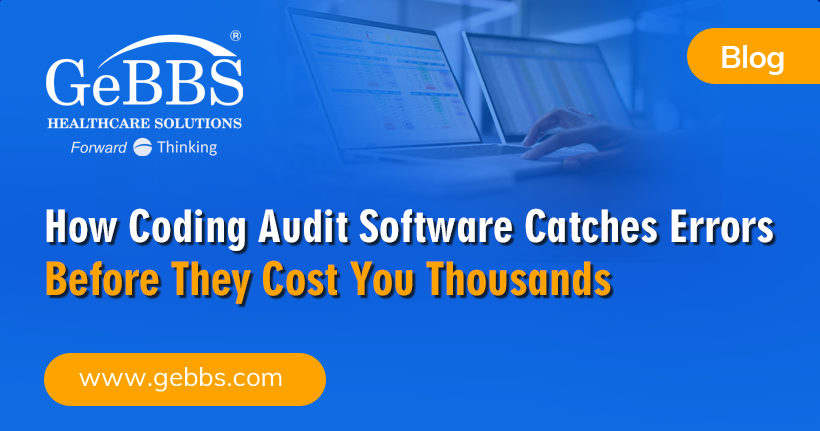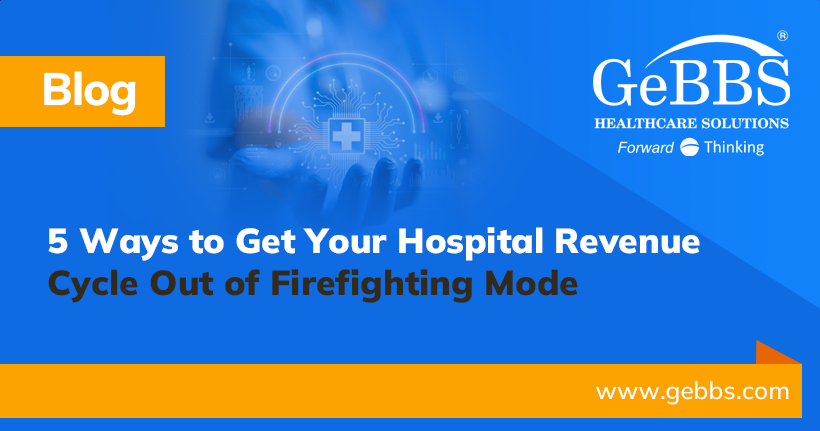The persisting pandemic, ongoing labor shortage and rising inflation have inflicted particular problems on healthcare providers and worsened existing challenges. From patient data inaccuracies to lost revenue, these issues have made one thing clear: To achieve and sustain success in this turbulent climate, healthcare providers must take a comprehensive view of risk management.
A practical, end-to-end risk-management strategy will improve accuracy, raise risk scores, enhance productivity, reduce costs and increase reimbursements. A comprehensive risk management solution will also yield valuable, predictive insights through precise data and real-time analytics that allow healthcare leaders to make knowledge-driven decisions.
Modern Risk Management Challenges
Healthcare risk management has traditionally emphasized patient safety by minimizing medical errors that also threaten an organization’s ability to provide care and remain financially viable. In recent years, however, new hurdles to this fundamental approach have risen.
Providers were already coping with implementing new federal patient data mandates and adapting to other evolving state and local regulations when the pandemic struck. Then came the economic roller coaster of unemployment, the Great Resignation and skyrocketing inflation.
The accompanying effects included a massive loss of company-sponsored healthcare coverage. More than 25 million Americans lost health insurance due to the pandemic and its corresponding economic impacts. While hospitalizations related to COVID-19 spiked, overall healthcare visits and elective procedures declined with the drop in coverage. Meanwhile, the increases in unemployed and self-employed Americans led to a surge in Medicaid and Affordable Care Act enrollments, coverages that provide lesser — and often less-predictable — revenue to providers.
Likewise, risk scores have dwindled with the drop in healthcare visits and elective services. This, in turn, captures fewer diagnosis and claim codes that are otherwise used to identify risk gaps.
Supply-chain issues have also rocked healthcare providers. One recent report found that 99 percent of hospitals and health systems have experienced supply acquisition problems since the pandemic’s onset.
Data disasters have further plagued providers. As healthcare teams struggled to maintain basic data collection processes, providers experienced mass worker resignations that have contributed to growing patient data inaccuracies. The labor shortage, especially for skilled workers such as medical coders, remains a crisis for many providers,
as does the cybersecurity risk posed by legacy platforms and third-party vendors who do not specialize in healthcare information management. Healthcare data breaches have hacked tens of millions of patient records alone in the past two years.
A New View of Risk Management
An inclusive approach to risk management includes accounting for risks at every step in the operational and revenue cycle processes, not just those directly related to patient care.
Interoperability is instrumental to effective risk management, but it remains an arduous work in progress for many providers. A recent survey of healthcare executives indicated a specific need for improved interoperability between healthcare systems and payer data.
Consider that access to, and the format of claims data varies by payer. But accurate, consistent, and timely data allows providers to conduct more precise risk modeling.
Better data leads to better analytics, which is crucial in this new era of risk management. Detailed analytics can inform risk factors, assess risk adjustment models and identify opportunities for targeted improvement.
A comprehensive view of risk management also appraises challenges on the horizon. These can include insurance market changes, clinical advancements and regulatory modifications.
Healthcare technology vendors can play a significant role in helping providers implement a value-based risk management strategy. Successful risk management today entails a holistic view of risk management and an enterprise risk management platform that unites every facet of operational and patient care processes.
Choosing a Risk Management Partner
Confronted with multiple catastrophes in a relatively short period, more healthcare providers have turned to third-party resources to manage aspects of their revenue cycle and risk adjustment processes.
But this carries some risks of its own, as not all risk management services offer the same level of healthcare experience and data security. In fact, healthcare vendor risk assessment has become an expanding concern in the wake of data breaches in which hackers targeted vulnerable outsourcers.
Yet working with the right risk management partner offers several benefits.
A successful enterprise risk management solution eliminates data silos between departments and systems and promotes accurate, consistent information. A qualified risk management partner will specialize in healthcare and have a record of success that demonstrates their ability to keep providers in compliance with federal, state and local regulations.
A state-of-the-art enterprise risk management platform should utilize advanced analytics and customizable reports that provide actionable intelligence. It should allow for in-depth, predictive contract and risk modeling.
An expert risk management partner takes data security seriously and safeguards public health information (PHI) in accordance with HIPAA rules. In addition, an enterprise risk management solution should contribute to lower operating expenses, including a reduction in a provider’s in-house technology costs.
The services offered by a risk management partner should be collaborative and scalable. Provider needs vary, and an enterprise risk management platform should provide flexibility as well as precision and peace of mind.
From a big-picture perspective, an enterprise risk management solution should positively impact every aspect of provider operations and patient experience.
About GeBBS Healthcare Solutions
GeBBS Healthcare Solutions is a leader in health information management and risk management services for healthcare providers and payers alike.
GeBBS is dedicated to providing its partners with leading-edge solutions that integrate technology and skilled human resources to deliver measurable results to productivity, profitability and patient care. GeBBBs is recognized as one of Modern Healthcare’s Top 10 Largest Revenue Cycle Management Firms, Black Book Market Research’s Top 20 RCM Outstanding Services and Inc. 5000’s Fastest-Growing Private Companies in the United States.
Connect with GeBBS today at gebbs.com to schedule a consultation and learn how we can help you optimize your risk management plan and maximize your profitability.






